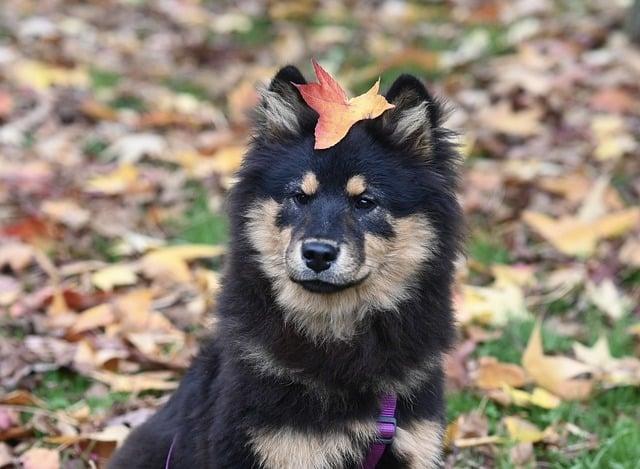In a quaint little town, a spirited Dachshund named Max became the heart of the community. At 17 years old, he still chased squirrels and greeted everyone with a wagging tail. His secret? A balanced diet, regular vet check-ups, and endless love. Max’s longevity sparked curiosity about dog breeds, leading many to discover that smaller breeds, like Chihuahuas and Dachshunds, often live the longest. If you’re considering a furry companion, think about adopting a breed known for its longevity. After all, a longer life means more cherished moments together.
Contents
- Understanding Longevity in Dog Breeds: Key Factors That Influence Lifespan
- Top Dog Breeds Known for Their Remarkable Longevity
- Essential Care Practices to Extend Your Dogs Life
- Making Informed Choices: Selecting the Right Breed for a Long and Healthy Life
- Q&A
Understanding Longevity in Dog Breeds: Key Factors That Influence Lifespan
When it comes to the longevity of our canine companions, several key factors play a pivotal role in determining how long they will be by our side. **Genetics** is perhaps the most significant influence; certain breeds are predisposed to longer lifespans due to their genetic makeup. For instance, smaller breeds like Chihuahuas and Dachshunds often enjoy longer lives compared to larger breeds, which may face more health challenges as they age. Understanding these genetic predispositions can help potential dog owners make informed decisions when choosing a breed.
Another crucial factor is **nutrition**. A balanced diet tailored to a dog’s specific needs can significantly impact their overall health and longevity. High-quality dog food that meets the nutritional requirements for a dog’s age, size, and activity level can help prevent obesity and related health issues. Additionally, regular veterinary check-ups and vaccinations are essential to catch any potential health problems early, ensuring that your furry friend remains healthy and vibrant throughout their life.
**Lifestyle** also plays a vital role in a dog’s lifespan. Regular exercise is essential for maintaining a healthy weight and promoting cardiovascular health. Engaging in daily activities, whether it’s a brisk walk or playtime in the yard, can enhance a dog’s physical and mental well-being. Furthermore, a stimulating environment that includes socialization with other dogs and people can reduce stress and anxiety, contributing to a longer, happier life.
Lastly, the **environment** in which a dog lives can greatly affect its lifespan. Dogs that are kept in safe, loving homes with minimal exposure to hazards tend to live longer. Factors such as climate, living conditions, and the presence of other pets can influence a dog’s health. By creating a nurturing environment that prioritizes safety and comfort, dog owners can significantly enhance their pet’s quality of life and longevity.
Top Dog Breeds Known for Their Remarkable Longevity
When it comes to choosing a furry companion, longevity is often a key consideration for many dog owners. Certain breeds have gained a reputation for their impressive lifespans, making them ideal choices for those seeking a long-term relationship with their pet. These breeds not only offer companionship but also tend to maintain their health and vitality well into their senior years.
Among the breeds celebrated for their remarkable longevity are:
- Chihuahua: Known for their spirited personality, Chihuahuas can live up to 15 years or more, often forming strong bonds with their owners.
- Dachshund: With an average lifespan of 12 to 16 years, these playful pups are not only adorable but also resilient, making them a popular choice for families.
- Pomeranian: These fluffy companions typically live between 12 to 16 years, bringing joy and energy to any household.
- Shih Tzu: With a lifespan of 10 to 16 years, Shih Tzus are known for their affectionate nature and adaptability, thriving in various living environments.
Another breed worth mentioning is the **Toy Poodle**, which can enjoy a lifespan of 12 to 15 years. Their intelligence and trainability make them not only long-lived but also a joy to train and interact with. Similarly, the **Beagle**, with an average lifespan of 12 to 15 years, is known for its friendly demeanor and playful spirit, making it a beloved family pet.
While genetics play a significant role in a dog’s lifespan, factors such as diet, exercise, and regular veterinary care can greatly influence their overall health. Choosing a breed known for longevity can be a step in the right direction, but ensuring a healthy lifestyle for your dog is equally important. By investing time and effort into their care, you can help your furry friend enjoy a longer, happier life by your side.
Essential Care Practices to Extend Your Dogs Life
To ensure your canine companion enjoys a long and healthy life, it’s crucial to adopt essential care practices that cater to their specific needs. Regular veterinary check-ups are paramount; these visits allow for early detection of potential health issues and ensure that vaccinations are up to date. A proactive approach to health care can significantly increase your dog’s lifespan.
Nutrition plays a vital role in your dog’s overall well-being. Providing a balanced diet tailored to your dog’s breed, age, and activity level can prevent obesity and related health problems. Consider the following dietary tips:
- High-quality dog food: Choose brands that meet AAFCO standards.
- Portion control: Follow feeding guidelines to avoid overfeeding.
- Fresh water: Ensure your dog has access to clean water at all times.
Regular exercise is another cornerstone of canine health. Engaging your dog in daily physical activity not only helps maintain a healthy weight but also supports mental stimulation and emotional well-being. Activities can include:
- Daily walks: Aim for at least 30 minutes of walking each day.
- Interactive play: Use toys that encourage movement and engagement.
- Training sessions: Incorporate obedience training to stimulate their mind.
Lastly, don’t underestimate the power of love and companionship. Dogs thrive on social interaction, and spending quality time with them can reduce stress and anxiety, contributing to a longer life. Create a nurturing environment by:
- Establishing routines: Dogs feel secure with consistent schedules.
- Providing mental enrichment: Use puzzle toys and games to keep their minds sharp.
- Building strong bonds: Regular affection and attention foster a deep connection.
Making Informed Choices: Selecting the Right Breed for a Long and Healthy Life
When considering a canine companion, the longevity of a breed can significantly influence your decision. Certain breeds are known for their impressive lifespans, often living well into their teens. By selecting a breed with a longer life expectancy, you not only enhance your chances of enjoying many years together but also contribute to a fulfilling and rewarding relationship. Understanding the characteristics and health predispositions of various breeds is essential in making an informed choice.
Among the breeds celebrated for their longevity, the **Chihuahua** stands out, often reaching ages of 15 years or more. Their small size and robust health contribute to their impressive lifespan. Similarly, the **Dachshund** is another breed that frequently enjoys a long life, with many living into their late teens. Their playful nature and adaptability make them wonderful companions, while their longevity ensures that the bond you form can last for many years.
In addition to these small breeds, some larger dogs also exhibit remarkable lifespans. The **Australian Cattle Dog**, known for its intelligence and energy, can live up to 15 years with proper care. Their active lifestyle and strong work ethic keep them healthy and engaged. Another breed worth considering is the **Poodle**, which, depending on its size, can live anywhere from 12 to 18 years. Their hypoallergenic coat and friendly demeanor make them a popular choice for families, while their longevity ensures they remain a cherished part of your life for years to come.
Ultimately, the key to ensuring a long and healthy life for your dog lies not only in choosing a breed known for its longevity but also in providing proper care, nutrition, and regular veterinary check-ups. By investing time and effort into understanding the needs of your chosen breed, you can create an environment that promotes health and happiness. Remember, a well-cared-for dog is more likely to thrive, allowing you to enjoy a fulfilling companionship that stands the test of time.
Q&A
-
Which dog breeds are known for their longevity?
Some of the dog breeds that are known to live the longest include:
- Chihuahua
- Dachshund
- Pomeranian
- Toy Poodle
- Shih Tzu
-
What factors contribute to a dog’s lifespan?
Several factors can influence a dog’s lifespan, including:
- Genetics
- Diet and nutrition
- Regular veterinary care
- Exercise and physical activity
- Living environment and stress levels
-
How can I help my dog live a longer life?
To enhance your dog’s longevity, consider the following:
- Provide a balanced and nutritious diet
- Ensure regular exercise and mental stimulation
- Schedule routine veterinary check-ups
- Maintain a healthy weight
- Offer a loving and stress-free environment
-
Are smaller breeds generally longer-lived than larger breeds?
Yes, smaller dog breeds tend to have longer lifespans compared to larger breeds. This is often attributed to their slower growth rates and lower risk of certain health issues commonly found in larger dogs.
choosing a dog breed known for longevity not only enhances your companionship but also enriches your life. By considering breeds like the Chihuahua or Dachshund, you can enjoy many joyful years together. Invest in a long-lasting bond today!

大家好,我是彼得潘,專業的手法身體治療師。我喜歡探索和研究各種主題,並透過與人工智慧的合作分享專業、實用、有趣的文章。我們定期進行人工審核,以確保內容的準確性。如果您發現文章中有任何不準確的地方,請隨時與我們聯繫,我們會及時糾正。您可以透過 [email protected] 與我們聯繫。



